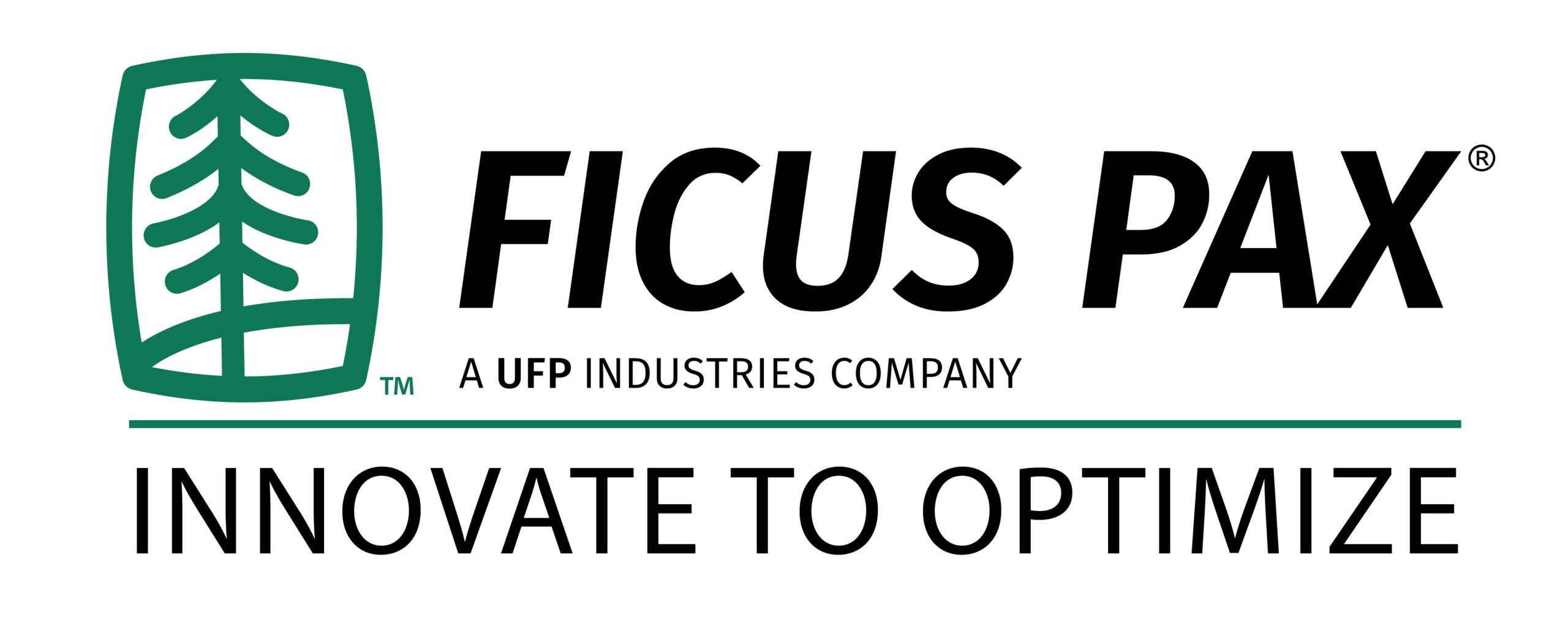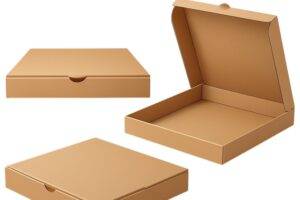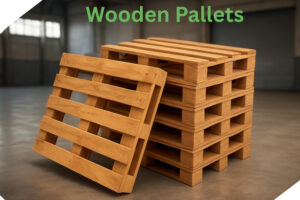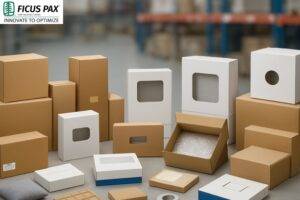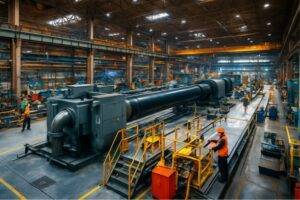Sustainable Packaging Innovations: Redefining Eco-Friendly Packaging with Biodegradable & Compostable Materials

In the pursuit of a greener future, Ficus Pax is at the forefront of sustainable packaging innovations. As environmental concerns escalate, the demand for sustainable packaging solutions that minimize environmental impact has never been more crucial. Our commitment to using biodegradable materials and compostable materials not only addresses these concerns but also sets new industry standards in eco-friendly packaging.
Why Sustainable Packaging Matters
Sustainable packaging is key to reducing the environmental impact of waste. Traditional materials like plastic and non-recyclable composites contribute heavily to pollution and landfill overflow. By adopting biodegradable and compostable materials, Ficus Pax is leading the way in mitigating these issues, promoting a cleaner, healthier planet.
The Rise of Biodegradable Materials
What Are Biodegradable Materials?
Biodegradable materials are designed to break down naturally through microorganisms. Unlike conventional plastics that take centuries to decompose, biodegradable materials decompose in a much shorter time, significantly reducing environmental impact.
Benefits of Biodegradable Packaging
- Environmental Impact: Biodegradable packaging reduces waste in landfills and oceans, decomposing naturally without leaving harmful residues.
- Resource Efficiency: Often made from renewable resources, these materials reduce reliance on fossil fuels.
- Consumer Appeal: Eco-conscious consumers prefer products with sustainable packaging, enhancing brand reputation and loyalty.
The Future with Compostable Materials
What Are Compostable Materials?
Compostable materials take sustainability further. Not only do they break down naturally, but they also enrich the soil by returning valuable nutrients. These materials are designed to compost in both industrial and home environments, making them ideal for eco-friendly packaging.
Benefits of Compostable Packaging
- Soil Enrichment: Compostable packaging breaks down into organic matter, improving soil health and fertility.
- Waste Reduction: These materials help reduce overall waste by turning into compost.
- Regulatory Compliance: As regions enforce stricter regulations on packaging waste, compostable materials help companies comply effortlessly.
Ficus Pax: Pioneering Sustainable Packaging
At Ficus Pax, we are committed to developing and utilizing the latest biodegradable and compostable materials. Our innovative solutions meet the growing demand for sustainable packaging without compromising on quality or functionality.
Our Sustainable Packaging Solutions
- Biodegradable Plastics: Made from plant-based polymers, our biodegradable plastics are durable yet decompose naturally over time.
- Compostable Films and Coatings: Ideal for food packaging, these materials ensure freshness while being environmentally friendly.
- Paper-Based Solutions: Our paper-based packaging is sourced from sustainably managed forests and is fully compostable.
Partnering for a Greener Future
Ficus Pax collaborates with industry leaders and environmental organizations to stay ahead in sustainable packaging innovations. Our goal is to provide solutions that not only meet current demands but also anticipate future sustainability trends.
Embrace the Future with Ficus Pax
The shift towards sustainable packaging is more than a trend; it’s a necessity. At Ficus Pax, we believe embracing biodegradable and compostable materials is crucial for the future of our planet. By choosing our sustainable packaging solutions, businesses can reduce their environmental impact, meet regulatory requirements, and appeal to eco-conscious consumers.
As the demand for sustainable packaging innovation grows, brands are redefining what eco-conscious packaging looks like. With increasing environmental concerns and global regulations tightening, the need for eco-friendly packaging solutions has become more urgent than ever. Forward-thinking companies are now investing in sustainable packaging solutions made from biodegradable and compostable materials to reduce their carbon footprint while boosting brand trust and loyalty.
Why Sustainable Packaging Matters
Traditional packaging—especially single-use plastics—poses serious long-term threats to the environment. These materials often clutter landfills, pollute oceans, and take centuries to degrade. In contrast, sustainable packaging focuses on reducing waste, utilizing renewable resources, and minimizing harmful environmental impacts.
Today, switching to sustainable products is no longer optional. Consumers are increasingly choosing brands that offer eco-friendly solutions and prioritize sustainability. Businesses that adapt now are better positioned to meet consumer expectations and future regulatory requirements.
Biodegradable Materials: A Smart Eco-Friendly Solution
What Are Biodegradable Materials?
Biodegradable materials are designed to decompose naturally through the action of microorganisms. Unlike conventional plastic, which remains in the environment for hundreds of years, these materials break down much faster—often within a few months—without leaving behind toxic residues.
Benefits of Biodegradable Packaging
- Environmental Protection: Reduces the accumulation of plastic waste in land and water ecosystems.
- Resource Efficiency: Typically made from renewable resources like corn starch or sugarcane, reducing reliance on petroleum-based products.
- Customer Trust: As demand for Paper-based packaging solutions increases, offering biodegradable packaging improves brand image and builds consumer loyalty.
Today’s sustainable packaging solutions include biodegradable polymers that offer durability, safety, and performance, while minimizing harm to the environment.
Compostable Materials: Taking Sustainability Further
What Are Compostable Materials?
All compostable materials are biodegradable, but they go one step further. When broken down, they transform into nutrient-rich compost, adding value to soil health. Compostable packaging is designed to degrade within a specific time frame, either in industrial or home composting environments.
Advantages of Compostable Packaging
- Soil Enrichment: Converts into organic matter that boosts soil fertility.
- Waste Reduction: Significantly lowers landfill contribution by turning packaging waste into useful compost.
- Regulatory Compliance: Helps brands comply with growing international laws and policies targeting single-use plastics and non-recyclable packaging.
Compostable material is ideal for food, retail, and industrial packaging applications where packaging performance and sustainability go hand-in-hand.
Ficus Pax: Pioneering Sustainable Packaging Solutions
Ficus Pax is committed to balancing sustainability, performance, and innovation packaging offerings. Their eco-friendly range includes:
- Biodegradable Plastics: Created from plant-based sources like corn and sugarcane.
- Compostable Films & Coatings: Excellent for preserving food freshness while being environmentally safe.
- Sustainably Sourced Paper Solutions: Fully compostable, versatile, and suitable for industrial and consumer use.
Each solution is engineered to support both environmental goals and business efficiency, helping brands make a meaningful impact.
Partnering for a Greener Future
To stay ahead in sustainable packaging innovation, many companies are collaborating with environmental organizations, suppliers, and research institutions. These partnerships drive innovation, uncover new materials, and ensure packaging strategies align with both industry trends and global climate goals.
Continual investment in research and development is essential for discovering advanced eco-friendly packaging technologies that meet changing consumer demands and emerging legislation.
Embrace Sustainable Packaging for Long-Term Impact
The transition to sustainable packaging is not a temporary trend—it’s a necessary shift toward a more responsible, circular economy. By choosing biodegradable and compostable materials, businesses can:
- Align with global sustainability standards
- Reduce their environmental footprint
- Appeal to eco-conscious consumers
- Future-proof their brand against regulatory changes
Eco-friendly packaging is more than a product choice—it’s a statement of purpose.
